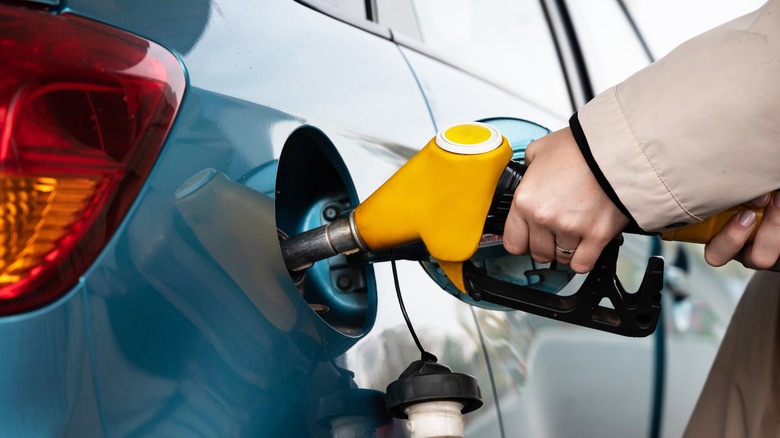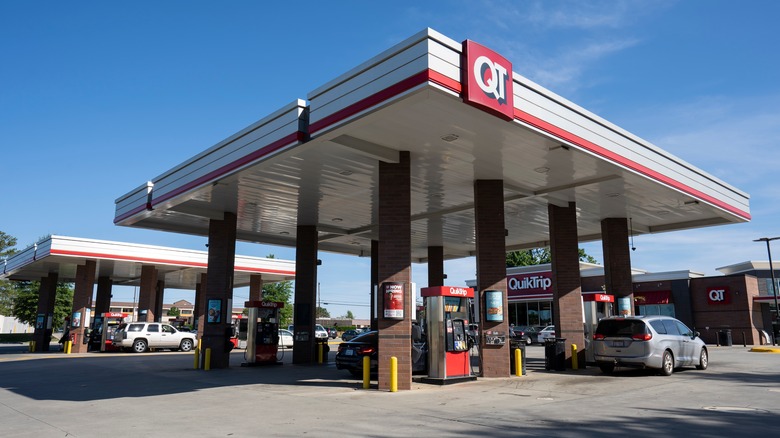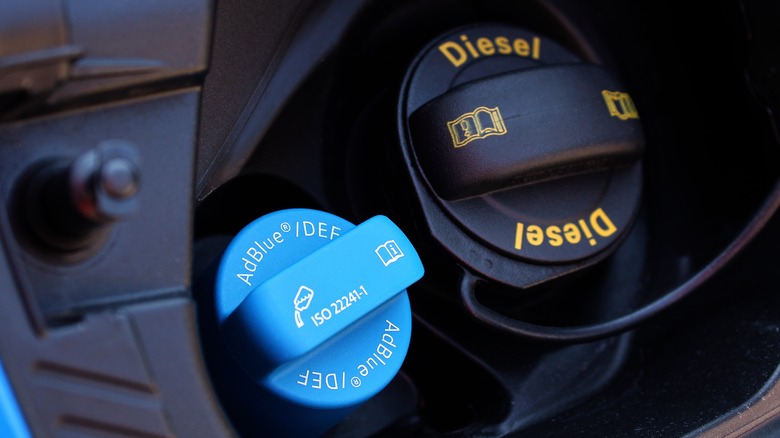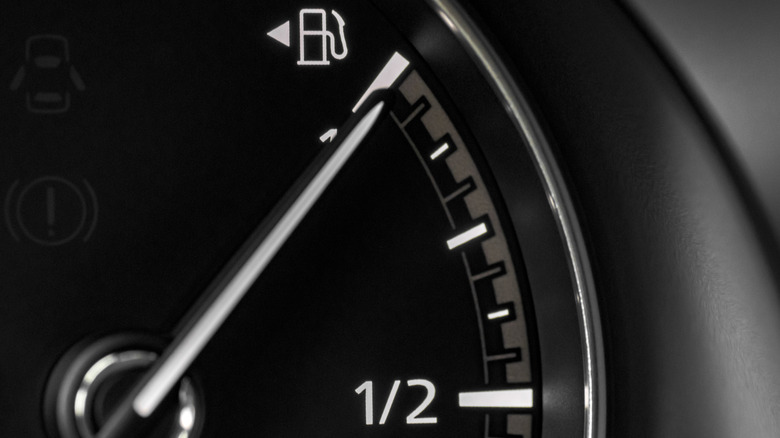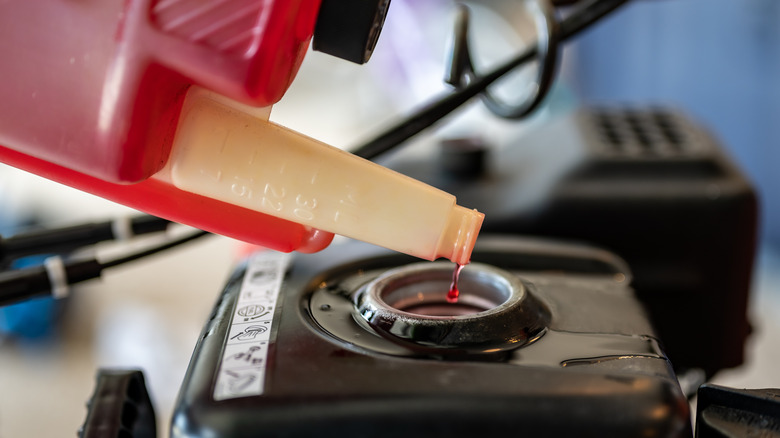4 Ways To Protect Your Car From Dangerous Fuel Contamination
For many of us, our cars are one of the most expensive items we own, if not the most expensive item. So if your vehicle stops working all of a sudden, it's hard to blame you for panicking. Of course, there are plenty of reasons why your car may be experiencing such problems, but one that may not have crossed your mind is your car's fuel quality.
Despite the steady rise of electric vehicles in our society, most of us still use traditional fuel to power our rides. But just like the many components that make up our cars, the substance that goes inside a vehicle can prove to be a detriment depending on its condition. Contaminated fuel is any kind of fuel that harbors foreign substances such as dirt, water, or metals. Car fuel can become contaminated in a number of ways, such as improper storage, being left in the tank for too long, or dirty filters.
While seemingly insignificant, these intruders can cause significant damage if left unchecked. Along with deteriorating your fuel pump and filter, contaminated fuel can also get into your engine and negatively impact its performance, causing it to lose power more rapidly or stop altogether. Thankfully, with regular care, a few handy tools, and a careful eye, you can avoid this nightmare from ever becoming a reality.
Get fuel from reputable sources
As idyllic as it would be to have nothing but burgers and donuts for each and every meal, we all know the long-term damage that would do to our health. Just as you're mindful of what you put into your body, being aware of what goes into your car is your first line of defense against contaminated fuel.
Heading to your nearest gas station to fuel up is a regular task that most drivers don't think twice about. However, it pays to take a closer look at where you get your gas, as it's not uncommon to come across news of even big name gas stations reporting fuel contamination. For example, there was an incident in August 2023 where nearly 30 Citgo gas stations in Tampa, Florida were reported to be affected by contaminated fuel. Since the quality of the fuel can only be truly detected through the use of specialized testing, you're not likely going to notice any significant difference as they're filling up.
Common sense is your best bet at deflecting this issue. Make sure wherever you get your gas has a well-established reputation. This not only means trusting the establishment on its name alone, but also digging deeper to see if it has had any past problems complying with state and federal fuel regulation standards set by organizations such as the Environmental Protection Agency. Generally, a clean station that sports high traffic is a good indicator that it's a reputable place. Additionally, make sure you're aware of what your car takes, a mistake like putting diesel in a gas car can lead to costly damage.
Stay on top of tank maintenance
While you'll definitely want to look out for bad fuel, the tank in which it's stored can also be at the root of a contamination problem. Rust, mold, fungus, algae, and other harmful microbes can fester inside your gas tank. Mixing these impurities with your fuel can lead to your car experiencing the problems that come with contamination, resulting in a very bad day for you. Tanks that aren't properly closed risk being exposed to the elements, especially excessive rainwater or snow that can cause rust.
Regular tank maintenance can help alleviate this issue. You should regularly have your tank cleaned. If you're comfortable enough, it's possible to do this on your own by draining and dropping the tank, removing the fuel pump, and using warm water, low-suds soap, and a mild detergent or cleaning solution to cleanse the inside. It's also important to clean the exterior of the tank using a brush to get rid of excess buildup and debris, as well as cleaning your tank filter or getting it replaced if necessary. The tank should be thoroughly dried before adding in fresh fuel, and you should inspect your tank for any exterior rust or other damage. Be sure to reference your car manual for more information on your specific tank.
Of course, if you're not comfortable with tending to your tank on your own, you can enlist the aid of a professional to clean your tank. Whichever route you choose, it's best to make this a part of your regular car maintenance checklist, preferably giving your tank a good cleanse every 12 months or so.
Ensure your tank stays full
It's easy to not think about your gas tank until you hit the road. What's the point if the car isn't going anywhere? However, keeping your tank consistently full when the vehicle is sitting for long periods of time (weeks or months) is a key way to combat the potential dangers of fuel contamination.
While it's easy to see how dirt and metals can negatively impact your fuel's ability to do its job, there's an invisible enemy that can similarly plague its performance. A tank that is left partially empty for an extended period can develop condensation, which can result in the build of water that can spell trouble once it mixes with your fuel. This danger is heightened during the winter months, when the air typically contains more moisture, giving more way for condensation and freezing. Likewise, a nearly empty tank gives more room to other harmful debris that may build up over time. This can lead to a higher chance of experiencing mechanical issues or being stranded on the road.
Use a fuel stabilizer
While it would be ideal for our cars to not sit around for too long, there are some scenarios where this has to be the case. This could be because you work from home, possess a collector's car mainly used for display purposes, are traveling for long periods of time, or the weather in your area is preventing you from driving about safely. Nevertheless, this leaves your fuel at risk of being contaminated, as its quality will naturally degrade overtime and eventually go stale.
If your car doesn't get moved all that much, a fuel stabilizer is a good investment that will benefit you in the long run. As its name suggests, this substance helps preserve the quality of your fuel for extended periods of time. Fuel stabilizer usually consists of a blend of special lubricants and antioxidants that works by chemically pairing with your fuel to prevent oxidation and condensation. While longevity of stabilizers depends on the brand, it's not uncommon to come across products that can last upwards of a year.
Obviously, this isn't a necessary product for every engine, especially for those who drive regularly. Additionally, you'll want to be sure that you pay close attention to how much you're using and how it corresponds with the amount of gas in your tank.
